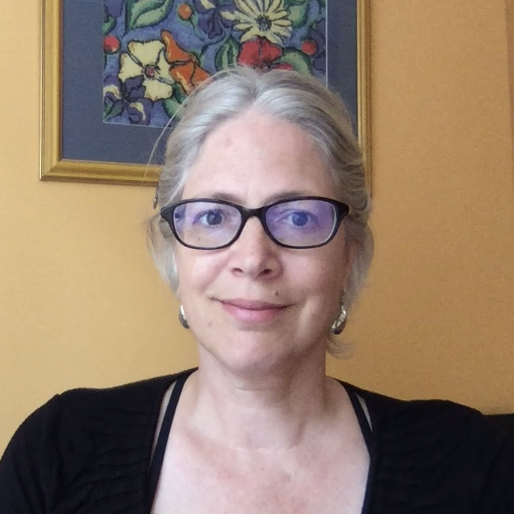
Katharine Anderson is a historian of science and professor in the Department of Humanities at York University in Toronto. She explores the history of our understanding of climate, weather and oceans. Currently she is writing on a book about the history of scientific expeditions and the ocean environment in 1920s and 1930s. On June 2, 2022 she gave a talk about The Ambitions of the Mobile Observer: Weather Knowledge Far from Home, as part of the Institutskolloquium SoSe 2022 on „Weather/Knowledge.“ Katharine kindly agreed to be interviewed for the Institutsblog (Interviewer: Vanadis Melchers).
How did you come across the topic of weather and oceans?
I got involved in investigating the history of weather as a historian of Victorian science and technology in the 1990s. I was interested in the development of expertise, since weather prediction was so controversial, and in all the technological contexts, from shipping to telegraphs, from cameras to spectroscopes. But I was also interested in the public audience for science, and the status of lay knowledge. Weather was one of those subjects that interested and touched many different levels of society and professional interests. It was a very lively subject for me and I luckily came across wonderful archives and stimulating colleagues. My subsequent interest in exploring the history of oceans and oceanography came later, quite a while after the first book. There is a lot of the maritime in Victorian meteorology as so many of the leading figures were naval officers, like Beaufort (of the Beaufort scale) or Robert Fitzroy (the first head of the British state meteorological department, in the Board of Trade). Still, I was a bit tired of weather history, and I had tenure, so I had the luxury of following up more experimental projects for several years. I worked on material culture and scientific instruments, on science museums old and new, on scientific narratives and explored how historians of science might work with ecologists in the HMAP project and in Atlantic hurricane records during the “data black” of World War II. These projects were pretty scattered, but still, I kept circling back to oceans and oceanography, which included some work on marine meteorology in the interwar period and after WWII. I was interested in how oceanography was a little like meteorology and climatology, in that it had to fight to establish itself as a discipline. For both atmospheric and oceanic science, the development of physical dynamics by the Bergen school in the 1920s was the great turning point. There are lots of connections, intellectually and methodologically. But for various reasons I think oceanography controlled its narrative better – it succeeded so much better with the classic strategy of becoming more and more like physics, especially after 1945. As a result, oceanographers often describe their discipline’s history with great confidence! I was intrigued by what was written out of that tidy narrative, and when – all the ways that oceans seemed so vital to understand in the early 20th century. It seems to me that oceans and atmospheres in the early twentieth century are not just interesting in themselves, but as subjects that tell us about globalism, that is how humans came to understand their world as deeply inter-connected, in a natural-physical-systems way, and also for the social and political consequences of those interconnections. So understanding that period better is important for today’s debates.
You explore our understanding of climate. How do you connect climate with the weather?
I think of the two terms as being about scale on the one hand, and experience and identity on the other hand. Climates are about the state of atmosphere considered on a big scale geographically and temporally – that is, regions and longer time periods. They require different kinds of measurement of course, but also a different kind of imagination. Weather is what we experience as individuals, as individual bodies, in local situations. We encounter climate necessarily as an abstraction; weather at some level retains an element of the subjective and personal. Scientists of course keep them strictly separate, and I understand the rationale for that – but I think compartmentalizing weather from climate and being a bit dismissive about people’s subjective experience (biased because local, biased because anecdotal, not instrumental and so on) has not been that helpful, after 20-30 years of climate ‘authority’ work! To force a “properly” objective understanding of climate (big, quantitative, abstracted) has perhaps been a stumbling block for public understanding of climate change. By this point, we have much more respectful interest in translating between scales, between the local experience to the larger regional and global effects, but there is also still some hostility and distrust because the presence of the denial of climate change raises the stakes – a climatologist can’t risk the authority of her climatological point of view. But translation to/among people’s lived experiences is essential. One of the experimental projects I imagined taking up twenty years ago was about immigrants and micro-climates – how do immigrant communities translate their understanding of weather, seasons, climate when they move across the world? Toronto is very multi-cultural, with very different neighbourhoods, and at the time I was thinking of how the Italian neighbourhoods which were settled in 1950s and 1960s, and they cut down trees where ever they could, and pave their front yards with concrete – it was all about finding the sun, and making heat. And yet now Toronto has one of the most fierce tree policies of any city – you can’t cut down a tree thicker than a twig, almost, without a permit from the department of urban forestry! I guess I am saying that I thought neighbourhoods would show how culture is climatological. I’d still love to know more how those transitions are navigated and the historical experience of changing weather, changing climates. But that’s a project for a sociologist, perhaps, not a historian.
When I think of climate, I usually think of the current situation or the future of climate change. Why are you interested in the history of weather/climate?
Well. To a historian, that’s a question like a red flag to a bull. History is stories, built from scraps of records of what happened before, and stories in turn are how humans understand anything. Look at the obsession with the 1918 flu epidemic and its waves as we navigate a global pandemic a century later. But if all history is relevant to present and future, some history is more relevant than others, and I think the modern era, the 18th to mid-20th century, has many parallels to think about – globalized economies, startling technological change, many political and social institutions, attitudes to nature and mobility. It’s a long list that could be continued. And more than all that, the environmental crises of our time now keep us preoccupied with the idea of history, the idea of a trajectory of change, of past, present, future. The Victorians were deeply, deeply preoccupied with that too: they understood themselves as a modern empire, shaped by new kinds of cities, new technologies and new forms of political organization. Evolutionary theory – the idea of species as a historical production – is part of this historical sensibility as well, of course. At the end of Origin of Species (1859), Darwin said that above all, future students of natural world need to adopt a more literal form of ‘natural history.’ He used a technological analogy and said “when we no longer look at an organic being as a savage looks at a ship, as at something wholly beyond his comprehension; when we regard every production of nature as one which has had a history,” then we’ll be on track to understanding species. Perhaps a student of climate could say the same thing now about the planet, needing to see “every production of nature as one which has had a history,” something built by events and actions, in order to understand and imagine possible futures. (H.G. Wells’ novel of 1895, The Time Machine, incidentally, is a great illustration of how all these scientific, political and social strands combine – that novel is full of climate thinking!) And so I would argue that the nineteenth and early twentieth centuries centuries are good to think with, when you are trying to imagine how the present looks as part of a historical arc. This is far from an original thought, of course. Many scholars have noted that our response to climate change depends on developing a sensibility to earth history. Tom Bristow and Thomas H. Ford’s introduction to their edited volume A Cultural History Climate Change (2017) is one example I admire. As they point out, the concept of the Anthropocene itself obviously requires a new sense of temporality, But the term marks a history of human knowledge-making as well as planetary change. Climate change is all about us in the double sense of an all-encompassing environment, and in the imperative need to keep our own species central to the story. We need better human-natural histories in order to understand human impact on the earth, and to grasp the possible futures of our knowledge-making about the environment.
The Institutskolloquium SoSe 2022 with the title Weather/Knowledge: Culture-analytical Perspectives on States of the Atmosphere gathers contributions from economic and social history, history of science, media studies, cultural anthropology, climate science as well as European ethnology, which open up manifold perspectives on the topic of weather/knowledge, from micro-analytical approaches to global considerations. The colloquium is organized by Christian Elster and Anna Weichselbraun.
